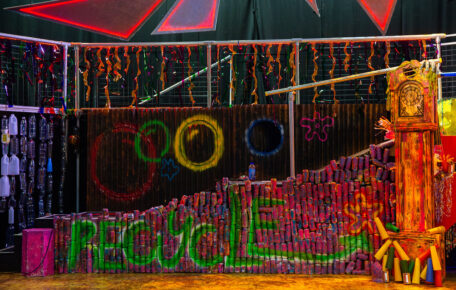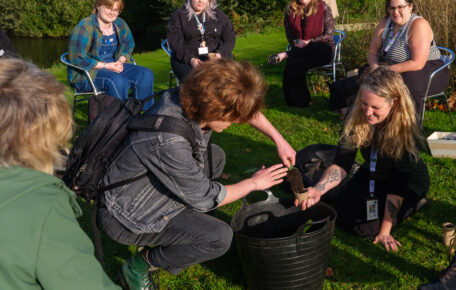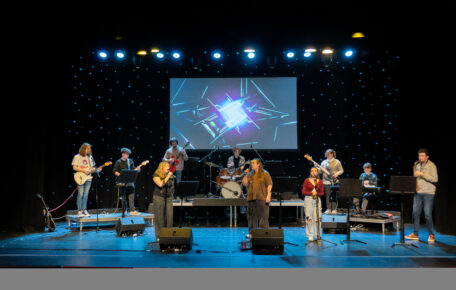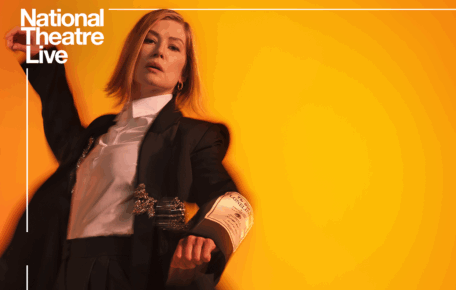
Interview: The Spongebob Musical 2025
As part of our Summer of Musicals season and Launch Fest 2025, students at the University of Lincoln brought Bikini Bottom to life with Nickelodeon’s The Spongebob Musical.
Ahead of Demo on April 21st, we down with Ewan East to chat all things 'Piano (To be played in any order).
How long have you been working on Piano (to be played in any order)?
The performance itself is actually going to be improvised, but the work and research around the performance started in October 2022 as part of my PhD. I suppose in one sense I’ve been working on this for 17 years, since I first started playing piano, with the improvisation on the night going to be the culmination of all the learning I’ve had over those years. I think that’s one of the beautiful parts of improvisation, it’s always the most recent representation of what you can do, it’s not a composition that pinpoints a moment in time, but instead is a in the moment realisation, using all of the skills and past performances to create a new work.
Why did you decide to create the show?
Piano (to be played in any order) will be the first live exploration of my research, exploring how the audience can be involved in a ‘shuffled’ format of compositions. My research focuses around the use of streaming services to shuffle compositions, but having the opportunity to develop a way to also utilise this idea in a live capacity is really exciting. Everything I am doing at the moment is about developing contemporary classical music, making it something that people want to explore and listen to, and I hope that this live performance will only continue to support that.
In the description of the piece, you say you’ll be ‘shuffling’ through live improvisations. Will any of the music be written before hand?
None of the music will be written before hand. The whole performance, including elements of interaction with the audience, will be because of what happens on the night. I’ve never been a good sight reader of music and even if I was to compose a piece specifically for myself I think it would take away from the freedom I get when improvising. I also think that this can bring a further element of engagement and excitement with the audience, everyone in the room, including me, doesn’t quite know where the music will go.
How will the audience interact with the piece?
Currently I plan of the audience being able to decide the narrative of my improvisations, therefore forming the structure and development of the piece through their narrative choices. A focus on using technology, audience members will be able to poll which narrative they want to be explored next. It’s then my role to try and make the improvisation fit with that narrative.
How do you plan to use any feedback provided after demo?
Feedback will help shape whether this style of performance is a viable option for performers. It also will allow me to see if this is a possibility for my own future as a performer, with the majority of my compositions requiring others to perform the work. If successful, this could be an avenue of performance that I explore and could develop into a large part of my own work as a musician.
Where will you be taking Piano (to be played in any order) next?
There is potential for this concept to be performed in other spaces, in particular to showcase a varied amount of my PhD work in a performance at York St John University. This performance can also inspire works for other instruments, perhaps adding the narrative words prior to a performance, therefore adding an element of composition. Whatever happens, I am confident that this format will be explored in a variety of aspects in the coming years!

A day long event focused on social prescribing, with a spotlight on young people’s voices and their mental health and wellbeing.

Join student performers from the University of Lincoln’s Music degree programme for three evenings of music from across genres and eras.

Oscar-nominated Rosamund Pike (Gone Girl, Saltburn) is Jessica in the much anticipated next play from the team behind Prima Facie.
Stay in touch by signing up to our mailing list
Enter your details below to subscribe to our newsletter and receive exclusive offers, event announcements, projects and news